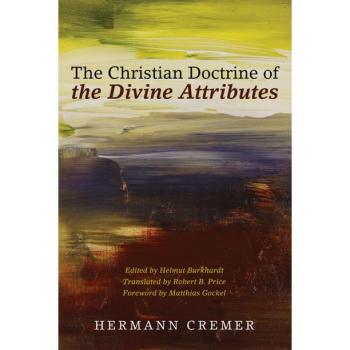William (Bill) Walker III is earning his Ph.D. in theology and ethics from Claremont Graduate University with Anselm K. Min as his mentor. He teaches courses in ethics at a university in San Antonio, Texas. He is a former student of mine and now I am also proud to call him my friend. Posting his essay on inclusivism here does not imply that I agree with everything in it. However, I think it is thought-provoking and well worth considering. It’s also erudite and very well written. Enjoy and respond (with respect and civility of course).
Inclusivism Revisited by William Walker III
I still remember the first time I started to wonder about the possibility of salvation for non-Christians. I was about nine-years-old when I asked my mom about it. She told me that we Baptists believe in an “age of accountability,” and she went on to express a firm expectation that God could be merciful to those who have not heard of Jesus or who are not old enough to understand their own sin and need of forgiveness.
A few years later the pastor of our church, who was also my uncle, preached a sermon that essentially affirmed the same idea. I’m truly grateful that my faith was formed in a home and in a church that gave me an open-ended answer to this question. I think it made a big difference in the development of my understanding of God’s character.
So for me this issue has never been a major hindrance to my belief in Christ as Lord and Savior. From time to time, however, I’m reminded how much of a stumbling block this belief is for so many non-Christians. I remember seeing an episode of Oprah where, after acting appalled by the narrow claims of Christians, she insistently asked, “How could there only be one way?” On the other hand, some restrictivists or exclusivists Christians – those who believe that salvation is only available to those who explicitly confess faith in Christ – are completely scandalized by the possibility of inclusivism (the view I’ve just described above that I was taught growing up).
In seminary I had the chance to explore this question in a deeper way. In one class, we read various accounts of restrictivism, inclusivism and universalism. In another, we focused more on theology of religions and considered a number of Christian interpretations of other faith traditions. Central to what I took away from this time was a new appreciation for the extent to which the various world religions have noticeably divergent understandings of what salvation even means.
From the Christian standpoint, salvation can be discussed in several ways. The primacy of God’s grace extended to us through Christ’s atonement despite deserved judgment is well established in Scripture, but the gospels highlight Jesus’ teachings about the Kingdom of God as well. The Kingdom of God is not a synonym for what most people mean by the word “heaven.” Nor is it a political reality obtainable in human history. Yet Jesus declared that this kingdom was at hand, and that people everywhere should repent and believe in its arrival.
Repentance and belief according to Jesus require “death to ego.” This death in turn suspends judgment and produces neighbor-love, the same neighbor-love commanded throughout the Old Testament. And given there is little conception in the Old Testament of salvation in terms of afterlife, wouldn’t it be strange for the Christian understanding to completely depend on such a notion? A better interpretation might be to say that Jesus elaborates upon the Jewish promise of salvation, rather than reverses it.
Jesus does this by incarnating full obedience to the law and the covenant with God, while also extending Israel’s election to the Gentiles. In doing so, Jesus embodies the faithfulness that Israel could not. This is what inaugurates Jesus’ reign — a reign that is not a straightforward overthrow of Rome, but neither is it an evacuation plan. Rather, it’s a subversive and transformative forgiveness and liberation plan: cosmic and historic, personal and communal, spiritual and social.
So if salvation isn’t primarily a question about what happens when we die, then maybe the issue of non-Christian salvation loses some of its urgency. Or, while I wouldn’t say it goes away, maybe the question simply takes on a different shape. Bonhoeffer speaks to this very much, I think, in his Letters and Papers from Prison:
“Hasn’t the individualistic question about personal salvation almost completely left us all? Aren’t we really under the impression that there are more important things than that question (perhaps not more important than the matter itself, but more important than the question!)? I know it sounds pretty monstrous to say that. But, fundamentally, isn’t this in fact biblical?”
Perhaps if salvation wasn’t equated with justification, or if salvation wasn’t divorced from discipleship and kingdom-building to begin with, the problem of “who will be saved” wouldn’t be so vexing. Arminian theologians maintain that though there is a logical order of 1) prevenient grace, 2) repentance, 3) justification and 4) sanctification in salvation, enabled by God through Christ. Yet, while each of these steps are distinct, the logic is not necessarily chronological. For this reason, I think we are permitted to say that someone could benefit from prevenient grace in his or her life without coming to explicit awareness of Christ as the object of faith.
Furthermore, when Jesus mentions hell and judgment in the Gospels, he mostly appears to be addressing hypocritical religious leaders, pretentious people in general, those who trust in wealth or themselves, and anyone who oppresses or just ignores the poor (which is still to oppress them). In sum, he’s warning people not to build their own kingdoms and not to exclude anyone from God’s kingdom. In this respect, he fits squarely in with the tradition of prophets before him.
Now, Jesus’ warnings about condemnation and destruction should be taken very seriously, for surely we’re all in danger of building personal kingdoms at different times in our lives. But something else one learns about studying the Bible is that verses mentioning hell, or Christ as “the way, the truth and the life,” cannot be read in isolation from their social and literary context. Nor are they to be taken simply as answers to questions we bring to the text (e.g., questions like “Can adherents to other religions or those who don’t know about Christ be saved?”). First, one must try to discover the questions with which the biblical authors and audiences might have been concerned.
Thus, reducing the gospel to a transaction between humanity and God through Jesus’ death that grants access to heaven instead of hell falls significantly short of its bigger biblical vision. Many times when a question like “how can the non-Christian be saved?” is raised, this reduction has already been committed. Bearing in mind instead the alternative and more holistic conception of salvation briefly outlined above, one is able to move past the question of individual standing before God and begin to see salvation more as a journey of becoming and partaking. It’s a journey that’s initiated by God and by grace through faith, yes, but faith that brings a transformed consciousness and social critique so that salvation can keep spreading!
I’ve always found the story of the thief on the cross from Luke 23 to be a compelling illustration of this. The second thief on the cross there probably didn’t know that Jesus was dying on account of humanity’s sin, but he knew “divinity” when he saw it. Unlike the two of them, Jesus was innocent, and the second thief acknowledges this. His spirit was contrite, his soul remorseful. Lo and behold, “paradise” would be his. And yet, this is not a gospel of indiscriminate inclusivity, for, presumably, the first thief is excluded – and not because he failed to pass an ethical or doctrinal test.
This is not the first time Luke juxtaposes two kinds of people in order to show us what salvation might look like. Luke 18:12-14:
‘I fast twice a week; I pay tithes of all that I get.’ “But the tax collector, standing some distance away, was even unwilling to lift up his eyes to heaven, but was beating his breast, saying, ‘God, be merciful to me, the sinner!’ “I tell you, this man went to his house justified rather than the other; for everyone who exalts himself will be humbled, but he who humbles himself will be exalted.”
Bonhoeffer’s distinction between the question of salvation on the one hand (i.e., who’s in/out, and on what grounds) and the matter itself (new life in Christ) on the other hand, may be the all-important one. Who is concerned about the question of salvation in the Bible? People like those in the crowd who, after hearing Jesus make his quip about the camel going through the eye of needle, ask Jesus, “Then who can be saved?” Or, people like the expert in the law who, desiring to justify himself, asks Jesus, “Who is my neighbor?” Only to get a very difficult and disappointing answer. Also, people like the disciples when they ask, “Which of us will be the greatest?” But see, the tax collector and the second thief are not trying to justify themselves. They know they can’t. Instead, they both cry out to God in the only way they know how.
The door of salvation is opened by receptivity to God’s humbling and convicting Spirit that is always already invading our space. This same Spirit, when recognized, calls for a “change of heart.” And if it is Christ who then leads people through the open door, who are we to be so certain about the limits on how, when or for whom he does this?
Without a sense that God steadfastly pursues and values all people, the basic human need to have clear-cut lines drawn between insiders and outsiders wins us over. Often though we aren’t even aware of this need, because the need itself can so easily be covered up by egoistic readings of the Bible. As any self-critical reading quickly shows, however, God likes to mess with our boundaries and gives us a different map. “The last will be first,” “the proud laid low”: insider-outsider distinctions are not just blurred; they are reversed. The formulas serving our insatiable drive for certainty and security are ultimately unsettled.
As I suggested before though, the question of non-Christian salvation nonetheless never entirely goes away. Obviously, we are in the realm of speculation at this point, but not outside the realm of biblical hope. In my judgment, to play it safe or plead utter ignorance by hiding behind some seemingly restrictivist texts is to risk missing the intensity of God’s love. This love has intensity that overflows from the center of the biblical narrative despite discrepancies. Conversely, to believe confidently in the redemption of the world with all its condemnable sin and blindness – with a biblically qualified sobriety and peace – is to keep oneself exposed to this intensity. In sum, Christians can go on repenting and believing, sharing and practicing the good news, trusting that, as Barth said, God’s “yes” will be bigger than our “no” – all the while letting God be God in the mission of redeeming humanity, history and creation.











